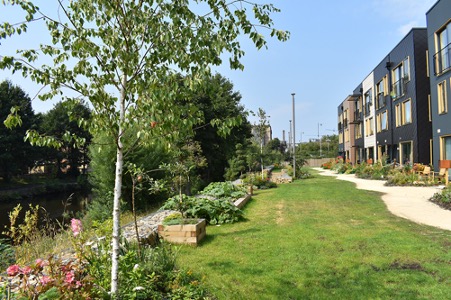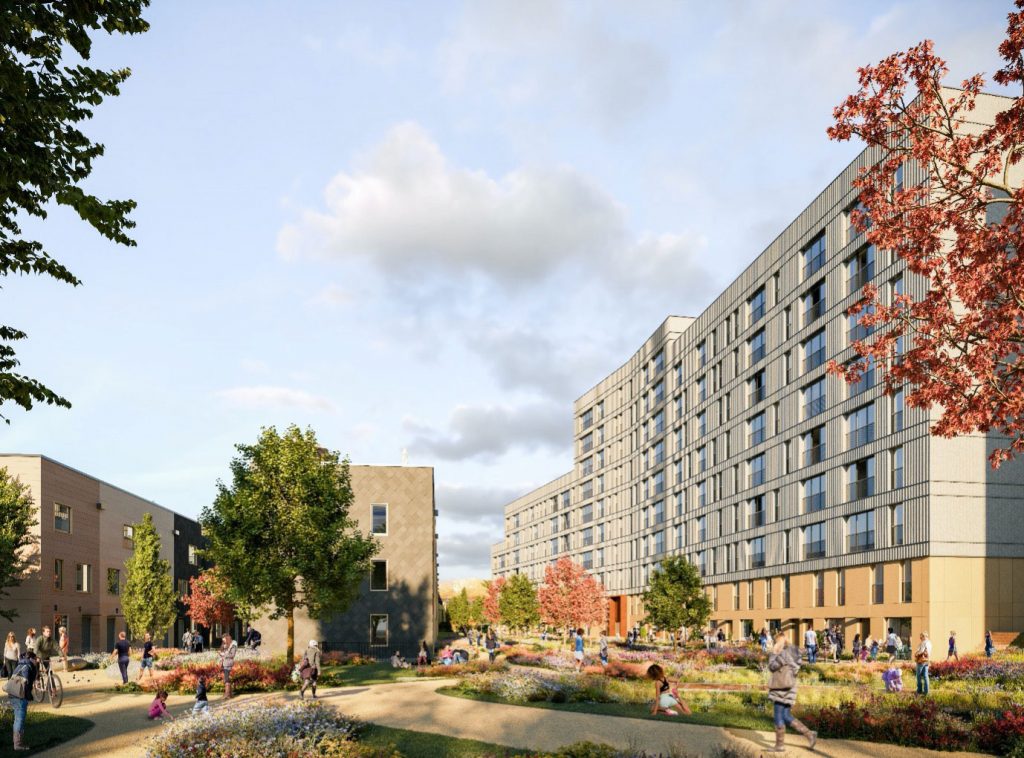
29 Mar 2021 | 3 min read

This article is for professional investors only, and not intended for retail investors.
When it comes to estate planning, Business Relief (BR) services are a popular choice for investors who would like to retain control of and continue to grow their wealth, whilst mitigating against Inheritance Tax. And whilst these aspects of estate planning have been objectives anticipated by advisers for some years, increasingly there is an additional challenge. Environmental, social and governance (ESG) factors are an ever-rising priority for many clients, especially as significant wealth is transferred to a younger and more socially conscious generation.
One investment strategy that can offer compelling returns for BR investors is secured lending to the real estate sector. Through investing in portfolio companies that provide senior, asset backed loans to developers on a project-by-project basis, investors have achieved steady returns with low volatility in a challenging investment environment. The real estate sector is not often considered to hold any ESG credentials, due to the perceived environmental impact of construction. However, in parts of the market, a focused investment strategy, construction reforms and Government initiatives can make for a more socially conscious investment opportunity than may present itself at first.
There is a longstanding, structural shortage of affordable housing in the UK, leaving huge pent up demand in communities across the country. Without alternative lenders funding development projects across a diverse range of locations, this is set to worsen and could push affordability further out of the average household’s reach. The supply deficit has been recognised by Governments for several years. In response, a raft of policies have been enacted, for instance, Help to Buy, that has enabled many, often first-time buyers onto the property ladder at a more affordable level than would ordinarily be possible. Whilst this makes for a compelling investment opportunity, it also means investors can make a real social contribution by supporting the Government’s objective to build more affordable housing.
However, the pressing issue of the environmental impact within residential real estate investment remains and if we are to meet the nation’s Net Zero 2050 targets, the construction industry must play a big part. Currently, according to the UK Green Building Council, the total built environment accounts for over 40% of the country’s carbon emissions, with half of that coming from the construction and operation (such as heating and cooling) of buildings. If the UK is to meet its commitment to become carbon neutral within the next 30 years, a fundamental shift is required in the delivery and design of new developments.
In September 2020, Ingenious became the first alternative investor to become a member of the UK Green Building Council (UKGBC), signing up to its mission statement to radically improve the sustainability of the built environment, by transforming the way it is planned, designed, constructed, maintained and operated.

At Ingenious, we are committed to financing more sustainable developments and we have ambitious targets to increase the portfolio’s exposure to them in 2021. An example of the developments we will support as part of this effort is the Climate Innovation District (CID) in Leeds. In January, Ingenious completed a £19 million deal to fund the second phase of this development, which will ultimately become the UK’s largest urban sustainable development1.
The developers, Citu, are committed to building sustainable homes that people want to live in. The structural frames, built in a factory local to the development, are made from timber, which is carbon negative. Windows are triple glazed for maximum efficiency and the houses are so energy efficient that the roof mounted solar panels create more energy than is required by the buildings, so it can be sold to the national grid. The MVHR heating system provides fresh air circulation while keeping heat within the building. In the communal areas, there are green walls, sympathetic planting to encourage bees and butterflies and even an otter house at this riverside location.

Combining the social impact of the contribution towards building affordable housing and the environmental impact of driving more sustainable practices within the construction industry, loan finance for real estate development projects can not only be an effective investment to grow wealth while mitigating IHT, but is an increasingly valid option for ESG conscious investors.
1Citu & Knight Frank, Climate Innovation District Information Memorandum, 2020